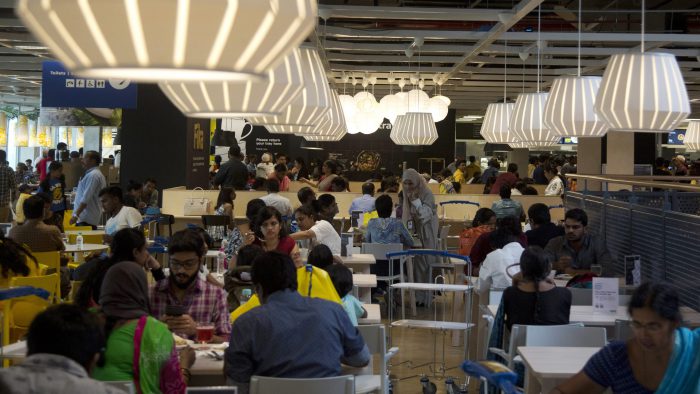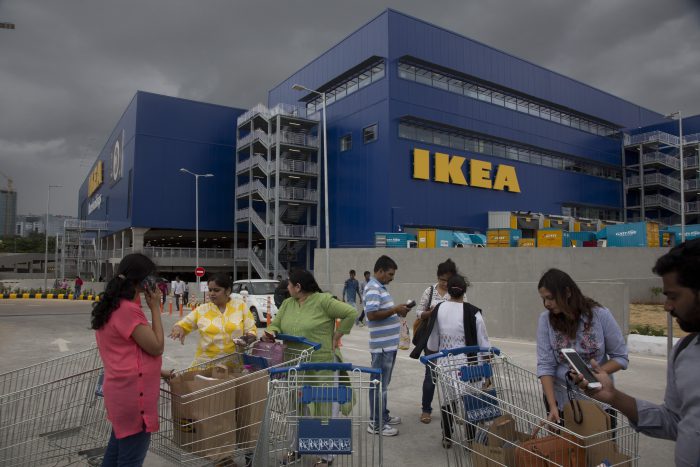IKEA is hoping to win over Indian customers on the merits of its Swedish furniture, not its Swedish meatballs.

The furniture giant opened its first store in India on Thursday with discounts on several popular items and no pork or beef on its restaurant menu, in an effort to cater to local tastes.
Eating red meat is frowned upon by Hindus, so IKEA tweaked its menu to add samosas, chicken balls and biryanis for its Indian debut.
The store’s manager, John Achillea, has said the menu was adjusted to better fit with Indian tastes.
“We respect the faith in India and our meatballs have pork and beef, so we won’t bring that to India,” Achillea said in a statement last summer, when details of the menu were revealed.
Grand opening
Band music and loud cheers greeted hundreds of customers at the store’s grand opening, five years after it received approval to invest in the country’s single-brand retail sector.
The store in the southern Indian city of Hyderabad, India’s information technology hub, is spread over a sprawling five hetares.
WATCH BELOW: IKEA founder Ingvar Kamprad passes away

IKEA Group CEO Jesper Brodin said the company’s involvement with India began over three decades ago with the sourcing of products.
“We have a long-term commitment to India, which is an important market for us,” the Press Trust of India news agency quoted Brodin as saying.

Get daily National news
The company’s vast array of goods available in one place gives it an advantage in India. The Indian furniture market is mostly unorganized and composed of small- and medium-sized businesses.

IKEA plans to open 25 stores in India by 2025. It says it currently employs 950 people and plans to hire another 15,000 as it expands operations.
India’s economy is growing by about seven per cent a year. Its retail sector provides the second-highest amount of employment after agriculture.
But small traders fear that large retail stores operated by multinational companies will lead to the closure of tens of thousands of mom-and-pop shops across the country.
Cheaper in India

IKEA set some of its prices even lower in India than elsewhere for its debut, in an attempt to woo cost-conscious shoppers unaccustomed to DIY furniture.
IKEA’s newly launched Indian website showed popular products at lower prices than in the United States or Canada. The white variation of its best-selling Billy bookcase is cheaper by a fifth and the dark-grey Ektorp sofa is priced 30 per cent lower than in the U.S. A thousand different items, including cutlery and stuffed toys, were priced at less than 200 rupies (US$2.91, or C$3.80).
Known for its giant out-of-town warehouse stores, IKEA is in the early stages globally of moving towards smaller inner-city showrooms as it adapts to the rise of online retailing.
IKEA has said it could take years to reach major profits in India. Raising the proportion of locally sourced goods will help in mitigating high import costs.
WATCH BELOW: Would you buy an IKEA receipt rug?

Regulation dictates IKEA must source at least 30 per cent of materials locally within five years of starting operation. It already sources about a fifth of its global supplies from India.
IKEA India boss Peter Betzel said products and materials that IKEA was currently looking to source more of locally were textile, metal and wood such as bamboo and acacia.
Nevertheless, analyst Sowmya Adiraju at researcher Euromonitor International said the target audience for many current IKEA products, especially big-ticket items, seemed to be the wealthier end of India’s middle class.
— With files from Reuters and The Associated Press








Comments
Want to discuss? Please read our Commenting Policy first.